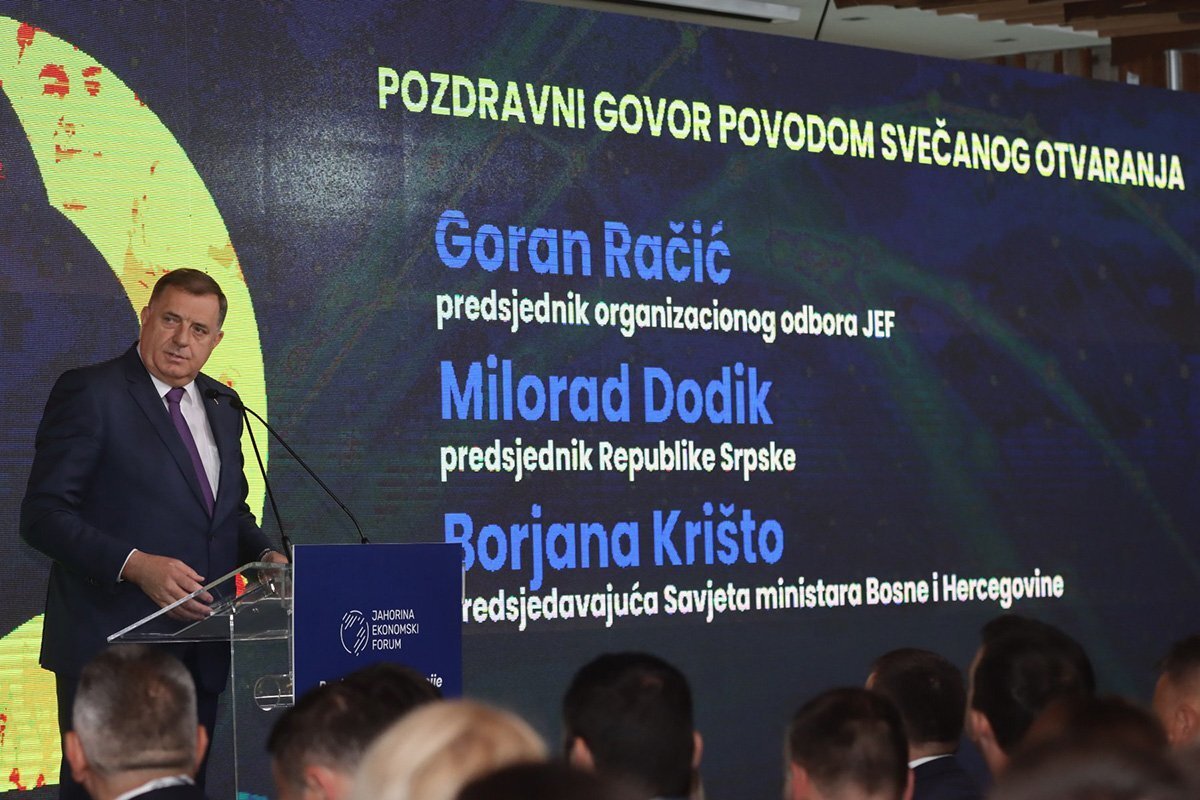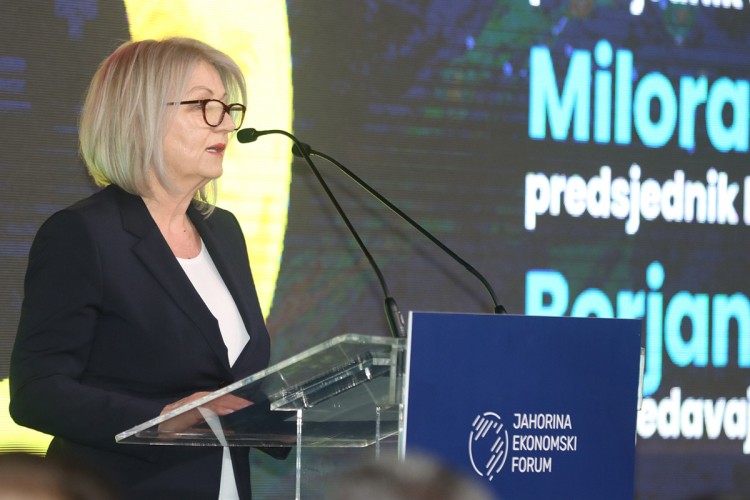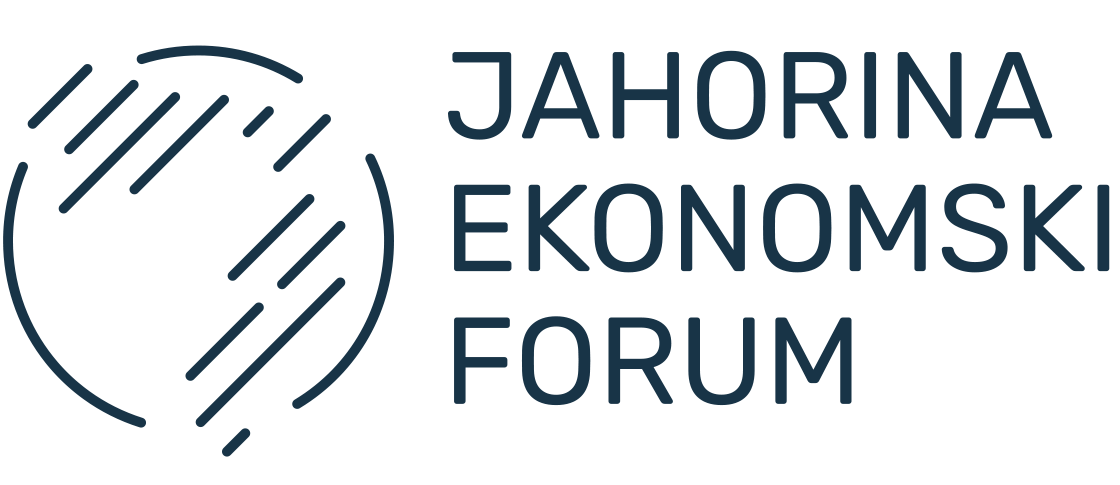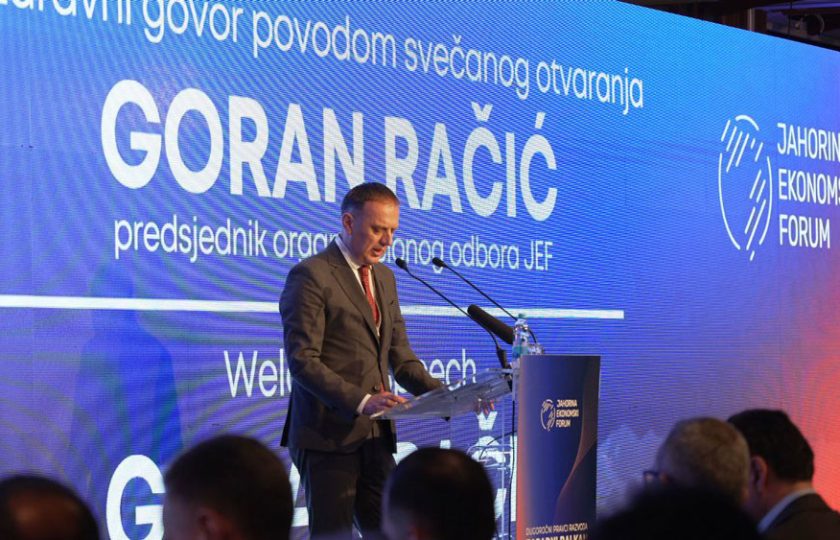
“Jahorina Economic Forum” opened: It was stated that BiH should join the “Open Balkans”.
JAHORINA – The President of Republika Srpska, Milorad Dodik, stated today at the ceremonial opening of the “Jahorina Economic Forum” that BiH should join the “Open Balkans” initiative.
Dodik mentioned that the concept of “Open Balkans” has been discussed for a long time, and the benefits can be seen from the example of countries already involved in this initiative.
“The term ‘Open Balkans’ exists because the region has long been closed and needs to be opened,” Dodik emphasized, recalling his support for the idea even during his tenure in the BiH Presidency.
Dodik highlighted that the business community in both Republika Srpska and the Federation of BiH believes this should be embraced.
“This was the reaction from businessmen in the Federation of BiH and all institutions in Republika Srpska. Political decisions on why this cannot happen, I can only speculate,” Dodik remarked, noting that these decisions may suggest hidden motives, as reported by Srna.
Upon analysis, he pointed out, it becomes evident that this initiative has a multi-ethnic character, and when considering its constituents, one can see high-quality structures in every aspect.
Dodik noted the significance of discussing the “Open Balkans” at Jahorina, at the forum, as, in his words, such discussions are not possible in Sarajevo.
He added that this economic forum is gaining significant importance and that the intention is to elevate it to an even higher level.
The Chairperson of the Council of Ministers of BiH, Borjana Krišto, emphasized the need to work on accelerating economic growth and increasing the competitiveness of the economy.

Krišto stated that Bosnia and Herzegovina’s economy is dependent on economic trends in the surrounding region.
“This is particularly evident today when we are facing various global challenges, from slow economic growth to worsened labor market conditions caused by the COVID-19 pandemic,” Krišto said.
She emphasized that the Council of Ministers is committed to sustainable economic growth and development, continuing socio-economic reforms, and strengthening the rule of law, political opportunities, and EU membership.
Highlighting that the “Jahorina Economic Forum” has been established as an important event for six years, she noted that the forum provides an opportunity to discuss crucial issues that will contribute to long-term socio-economic development and improvement of the business environment.
She expressed confidence that this year’s “Jahorina Economic Forum” will foster better communication among participants and yield quality conclusions.
Račić: Bosnia and Herzegovina should not allow itself to be a passive observer
Goran Račić, President of the Organizing Committee of the “Jahorina Economic Forum,” stated at the opening of the event that Bosnia and Herzegovina should not allow itself to be a passive observer but should be part of an integrated market of 18 million people where people, capital, and knowledge move freely.
Račić emphasized that although the “Open Balkans” initiative, founded by Serbia, North Macedonia, and Albania, is based on economic principles, it has not received approval from other countries in the region.
“It is well known that Republika Srpska has accepted the ‘Open Balkans,’ while the reasons for rejection from the Federation of BiH are political in nature. At this moment, it is encouraging that the newly elected president of Montenegro (Jakov Milatović) has expressed readiness for this country to be part of the ‘Open Balkans,'” Račić emphasized.
According to him, all Balkan countries prioritize regional cooperation as one of the main objectives of their foreign policy. At present, there are more than ten agreements regulating regional integration into the EU, with the most significant initiatives being the “Berlin Process” and the “Open Balkans.”
“The Berlin Process is an intergovernmental initiative launched in 2014 under the auspices of the German Chancellor with the aim of connecting the Western Balkan countries and the EU on their path to full EU membership. However, the results of this initiative are modest, and it has not met the expectations of citizens or the economy,” Račić said.
He highlighted that the “Open Balkans” initiative does not intend to replace the “Berlin Process” and is related to its own resources, mutual recognition of certificates accompanying the movement of goods and services, simpler border procedures, and mutual recognition of diplomas.
Račić emphasized that the “Jahorina Economic Forum” has been one of the most prestigious regional events for six years, bringing together representatives of state institutions, companies, and experts to discuss relevant conclusions on how to improve public policies and the economy.
Today, the first day of the forum, discussions are planned within nine panels, while tomorrow, the second day, participants will engage in discussions within eight additional panels.
The forum will address regional topics such as “Open Balkans,” economic cooperation, energy transition, agriculture and digital transformation, and strengthening the competitiveness of local communities and the local economy, the organizers announced.
The “Jahorina Economic Forum” is held under the joint patronage of the President of Republika Srpska Milorad Dodik, the Serbian member and chair of the Presidency of BiH Željka Cvijanović, the Council of Ministers, the Ministry of Foreign Trade and Economic Relations, and the Association “Economic Forum.”
Source: nezavisne.com



